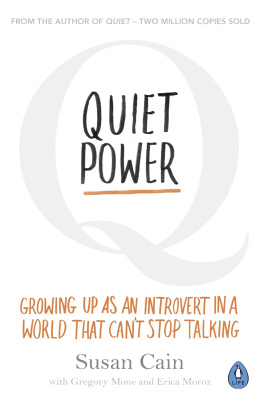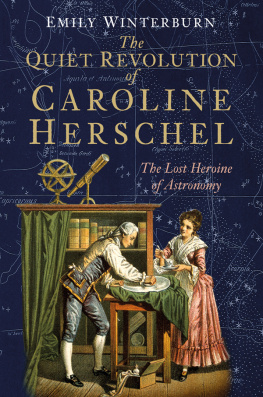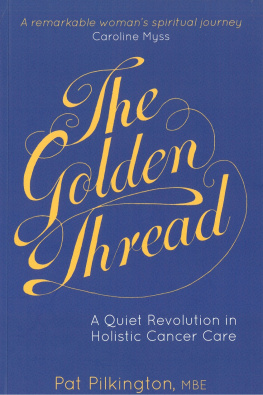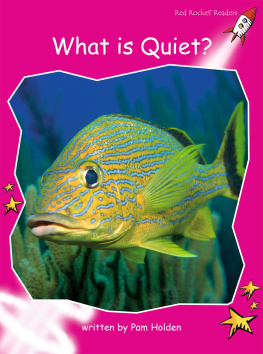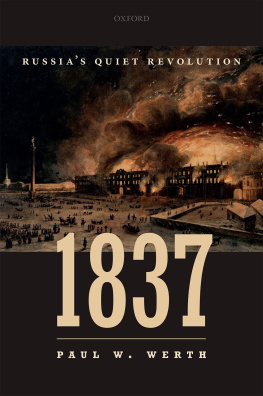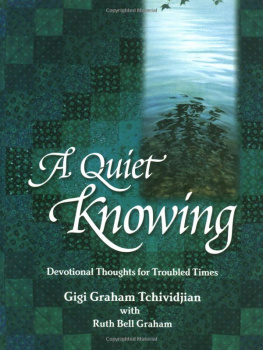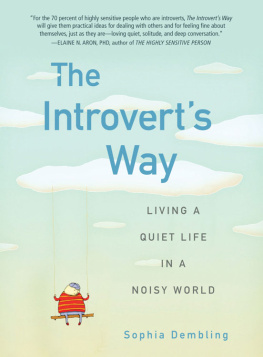Sponsel - Spiritual Ecology: A Quiet Revolution: A Quiet Revolution
Here you can read online Sponsel - Spiritual Ecology: A Quiet Revolution: A Quiet Revolution full text of the book (entire story) in english for free. Download pdf and epub, get meaning, cover and reviews about this ebook. year: 2012, publisher: Greenwood Publishing;Abc-Clio, genre: Religion. Description of the work, (preface) as well as reviews are available. Best literature library LitArk.com created for fans of good reading and offers a wide selection of genres:
Romance novel
Science fiction
Adventure
Detective
Science
History
Home and family
Prose
Art
Politics
Computer
Non-fiction
Religion
Business
Children
Humor
Choose a favorite category and find really read worthwhile books. Enjoy immersion in the world of imagination, feel the emotions of the characters or learn something new for yourself, make an fascinating discovery.

Spiritual Ecology: A Quiet Revolution: A Quiet Revolution: summary, description and annotation
We offer to read an annotation, description, summary or preface (depends on what the author of the book "Spiritual Ecology: A Quiet Revolution: A Quiet Revolution" wrote himself). If you haven't found the necessary information about the book — write in the comments, we will try to find it.
Sponsel: author's other books
Who wrote Spiritual Ecology: A Quiet Revolution: A Quiet Revolution? Find out the surname, the name of the author of the book and a list of all author's works by series.
Spiritual Ecology: A Quiet Revolution: A Quiet Revolution — read online for free the complete book (whole text) full work
Below is the text of the book, divided by pages. System saving the place of the last page read, allows you to conveniently read the book "Spiritual Ecology: A Quiet Revolution: A Quiet Revolution" online for free, without having to search again every time where you left off. Put a bookmark, and you can go to the page where you finished reading at any time.
Font size:
Interval:
Bookmark:
Leslie E. Sponsel earned the BA in Geology from Indiana University (1965), and the MA (1973) and PhD (1981) in Biological and Cultural Anthropology from Cornell University. Over the last four decades he has taught at seven universities in four countries, two as a Fulbright Fellow. In 1981 he joined the Anthropology faculty at the University of Hawaii to develop and direct the Ecological Anthropology Program. His courses include Ecological Anthropology, Environmental Anthropology, Anthropology of Religion, Spiritual Ecology, Sacred Places, Anthropology of Buddhism, Ethics in Anthropology, and Anthropology of War and Peace. Although retired since August 2010, he teaches one or two courses annually and devotes the rest of his time to research and publications.
From 1974 to 1981 Sponsel conducted several trips to the Venezuelan Amazon to study human ecology with the Yanomami and other indigenous societies. Almost yearly since 1986 Sponsel has made research trips to Thailand to study various aspects of Buddhist ecology and environmentalism together with his wife, Dr. Poranee Natadecha-Sponsel of Chaminade University of Honolulu. In recent years their work in northern Thailand has focused on exploring sacred caves.
Among Sponsels extensive publications are more than two dozen journal articles, three dozen book chapters, 29 entries in eight different scientific encyclopedias, and two edited and two co-edited books. Henceforth he will focus on publishing other books integrating his previous articles and chapters on several different subjects as well as on developing the Research Institute for Spiritual Ecology (RISE) and its website.
The website for this book is http://spiritualecology.info. Comments on this book are welcome and most appreciated at les.sponsel@gmail.com. Please specify subject as SE Comments.
Leslie E. Sponsel
All rights reserved. No part of this publication may be reproduced, stored in a retrieval system, or transmitted, in any form or by any means, electronic, mechanical, photocopying, recording, or otherwise, except for the inclusion of brief quotations in a review, without prior permission in writing from the publisher.
Library of Congress Cataloging-in-Publication Data
Sponsel, Leslie E. (Leslie Elmer), 1943Spiritual ecology : a quiet revolution / Leslie E. Sponsel.
p. cm.
Includes bibliographical references and index.
ISBN 9780313364099 (hardcopy : alk. paper) ISBN 9780313364105 (ebook)
1. Human ecologyReligious aspects. 2. Indigenous peoplesEcology. 3. Philosophy of nature. 4. Environmental ethics. I. Title.
GF80.S668 2012
304.2dc23 2012014961
ISBN: 9780313364099
EISBN: 9780313364105
1615141312 12345
This book is also available on the World Wide Web as an eBook. Visit www.abc-clio.com for details. Praeger
An Imprint of ABC-CLIO, LLC
ABC-CLIO, LLC
130 Cremona Drive, P.O. Box 1911
Santa Barbara, California 93116-1911
This book is printed on acid-free paper
Manufactured in the United States of America
This is a subject that should have been documented long agothis wise and careful book fills an important gap, and does it with real power.
Bill McKibben, author Eaarth
This book is a tour de force. No one has attempted to bring together such a wide range of people and movements under the rubric of Spiritual Ecology. The result is deeply engaging for scholars and activists alike. Sponsel has given us a gem.
Mary Evelyn Tucker, Forum on Religion and Ecology, Yale University
Sponsel, a noted scholar of ecological anthropology, traces a broad, ecumenical religion of nature from deep roots in the past to modern advanced thinkers. He argues persuasively that we would not have an environmental crisis today if we treated the earth with respect and reverence. The book offers a fascinating tour through the spiritual landscape, and its extensive notes give readers a rich guide to further reading and reflection.
Donald Worster, author of A Passion for Nature: The Life of John Muir
Spiritual Ecology is essential reading today, when most of the world seems swept up by the economic dimensions of the environment. Providing a welcome antidote to the current materialistic approach, Leslie Sponsels keen reminder of the spiritual component of nature is both timely and a reminder that the most effective reasons for conservation come from the heart, not from the wallet.
Jeffrey A. McNeely, Senior Science Advisor, International Union for Conservation of Nature
Leslie Sponsels new book is an excellent guide to spiritual ecology. It is much more: it is an evocation of spiritual ecologyits forms, its dynamic development, and its promise for the contemporary world. Dr. Sponsel, a leading authority on this field, provides a historical overview of the development of ecological and environmental visions in religion from earliest times to the present. He surveys major religions, and, in particular detail, modern writers who have developed new philosophical understandings of religion-environment relationships. This book serves both as a wonderful introduction to the field and an inspiring essay on the basic tenets, values, and goals of spiritual ecology.
Eugene N. Anderson, Professor Emeritus of Anthropology, University of California Riverside
I am delighted with this inspiring panoramic introduction to the remarkable people who have personally contributed to the on-going quiet revolution that will help solve our contemporary problems of conflict, poverty, and environmental degradation. This source book could only have been produced by an anthropologist with firsthand experience with life in the tribal world and in the ancient great civilization cultural traditions of South and Southeast Asia. This is an absolute treasure trove of cross-cultural ideas and sources for beliefs and practices that respond constructively to global environmental problems and related social justice issues. I immediately went to the library and the Internet to learn even more about particular organizations and people. As an anthropologist who has been concerned with indigenous people and the environment for many years, I am especially pleased with how sensitively Sponsel treats the ecologically noble savage issue, and the well-deserved importance he gives to animist beliefs generally.
John H. Bodley, Washington State University
At a moment in history when political and technological solutions to the environmental crisis have been shown to have their limits, Leslie Sponsel has compiled a wonderful collection of essays on a spiritual approach to ecology. Fundamentally re-envisioning the relationship between the human and nature, Spiritual Ecology draws on the wisdom and practical insights of global spiritual traditions from antiquity to the present. This is a foundational text that includes inspirational classics as well as critical essays that explore how a spiritual ecology can deeply inform our debates about our relationship to our planet.
Duncan Williams, School of Religion, University of Southern California
Humans possess an inherent inclination to find meaning and purpose through their relation to the world beyond themselves, to what we call nature. This marvelous and informative book explores this need from its roots in tribal cultures through its expression and distortion in the modern era. It is only recently that people have come to believe human progress and civilization mean transforming and transcending our evolutionary roots in the natural world. This book importantly explores and leads the way toward a new movement, spiritual ecology, bringing us back to our spiritual roots in nature.
Stephen R. Kellert, Yale University School of Forestry and Environmental Studies
Next pageFont size:
Interval:
Bookmark:
Similar books «Spiritual Ecology: A Quiet Revolution: A Quiet Revolution»
Look at similar books to Spiritual Ecology: A Quiet Revolution: A Quiet Revolution. We have selected literature similar in name and meaning in the hope of providing readers with more options to find new, interesting, not yet read works.
Discussion, reviews of the book Spiritual Ecology: A Quiet Revolution: A Quiet Revolution and just readers' own opinions. Leave your comments, write what you think about the work, its meaning or the main characters. Specify what exactly you liked and what you didn't like, and why you think so.

